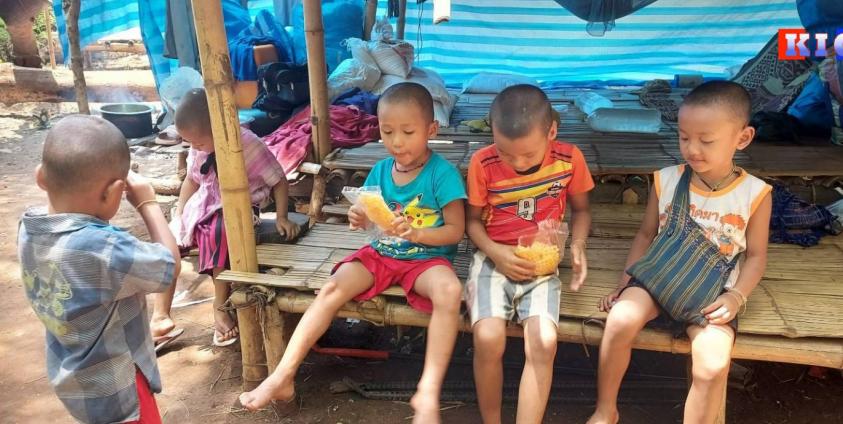Saw Doe Doh Eh K’lu, a medical trainer at KawThooLei Department of Health and Welfare (KDHW), said lack of access to nutritious food, basic medicine and clean water are causing many fever and diarrhea among displaced children. The non-stop monsoon rains have added to the health difficulties and suffering of the displaced people in Karen State.
Saw Doe Doh Eh K’lu explained to Karen News what the health problems the displaced people are now facing.
“The most common symptoms found in IDPs are the common cold and fever. Some people also have diarrhea. They desperately need warm clothing and mosquito nets. It’s not possible for IDPs to boil water, so they are using rainwater as their drinking water.”
Ko Thet, a parent, who fled the war around his village said that more and more displaced children sheltering along the Thaung Yin River, south of Myawaddy, east of Dawna, had colds from the continuous rain.
Ko Thet said because of the rain; “most children have fevers. They’re exposed to the rain. The children had to stay in tents. If they go outside the house, they will be in the rain. It happened to my child.”
Naw K’nyaw Phaw, secretary of the Karen Women’s Organization (KWO), said the lack of safe shelter for the displaced people now taking refuge in the mountains and jungles, had made the situation serious as it will lead to more health problems for new mothers, elderly people and children.
Naw K’nyaw Phaw pointed out that “when people flee war, women and children suffer more. Now that the rainy season has arrived, the elderly and babies often get sick from being in the rain. And, pregnant women and new mothers can have serious health complications if they are exposed to the constant rain. We are worried about the children and mothers fleeing the war at this time.”
The Karen Women’s Organization documented from January to March 2022, in the seven districts under the control of the Karen National Union, more than 150,000 civilians have been displaced because of war, and about 75% of them are women and children.








